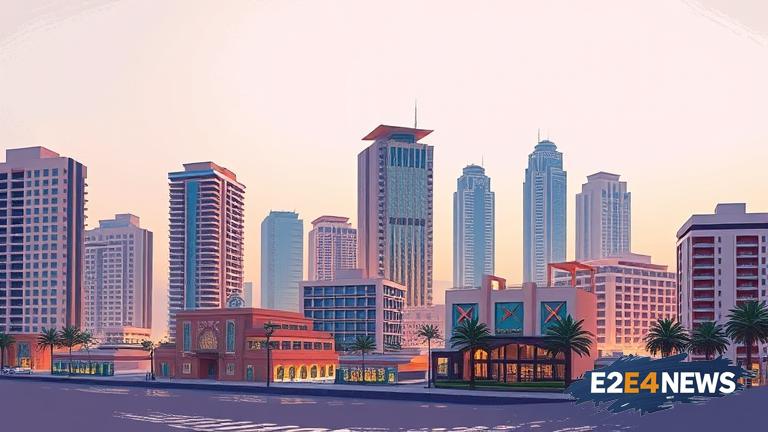Bahrain’s real estate market has been witnessing a significant transformation in recent years, with the government launching various initiatives to boost the sector. The Bahraini government has been investing heavily in infrastructure development, including the construction of new roads, bridges, and amenities, which has helped to attract more investors and homebuyers to the market. One of the key drivers of growth in the real estate market is the government’s efforts to increase the supply of affordable housing. The government has launched several initiatives, including the Mazaya program, which provides financing options for low-income citizens to purchase homes. Additionally, the government has also introduced new regulations to regulate the real estate market and protect the rights of homebuyers. The real estate market in Bahrain has also been boosted by the growth of the tourism sector, with the government investing in new hotels, resorts, and other tourist infrastructure. The kingdom’s strategic location, situated between the East and the West, makes it an attractive destination for tourists and businesses alike. The real estate market in Bahrain is also driven by the demand for commercial and industrial properties, with many international companies setting up operations in the kingdom. The Bahraini government has established several free zones and industrial areas, which offer attractive incentives and benefits to investors. The real estate market in Bahrain is expected to continue growing in the coming years, driven by the government’s initiatives and investment in infrastructure. The market is also expected to be driven by the growth of the economy, with the kingdom’s GDP expected to increase in the coming years. The real estate market in Bahrain offers a range of opportunities for investors, from residential and commercial properties to industrial and tourism-related projects. The kingdom’s real estate market is also characterized by a high level of transparency and regulation, with the government introducing new laws and regulations to protect the rights of investors and homebuyers. The Bahraini government has also established a number of initiatives to support the growth of the real estate market, including the Bahrain Real Estate Investment Company, which provides financing options for real estate projects. The company has invested in several high-profile projects, including the Bahrain Bay development, which is a major mixed-use development located in the heart of Manama. The development includes a range of residential, commercial, and retail properties, as well as several hotels and amenities. The Bahraini government has also launched several initiatives to support the growth of the tourism sector, including the Bahrain Tourism Strategy 2015-2018, which aims to increase the number of tourists visiting the kingdom. The strategy includes a range of initiatives, including the development of new tourist infrastructure, such as hotels, resorts, and theme parks. The government has also introduced new regulations to support the growth of the tourism sector, including the introduction of a new visa regime, which makes it easier for tourists to visit the kingdom. The real estate market in Bahrain is expected to continue growing in the coming years, driven by the government’s initiatives and investment in infrastructure. The market is also expected to be driven by the growth of the economy, with the kingdom’s GDP expected to increase in the coming years. The Bahraini government is committed to supporting the growth of the real estate market, and has introduced a range of initiatives to attract more investors and homebuyers to the market. The government has also established a number of initiatives to support the growth of the tourism sector, including the development of new tourist infrastructure and the introduction of new regulations to support the growth of the sector. Overall, the real estate market in Bahrain offers a range of opportunities for investors, from residential and commercial properties to industrial and tourism-related projects.





